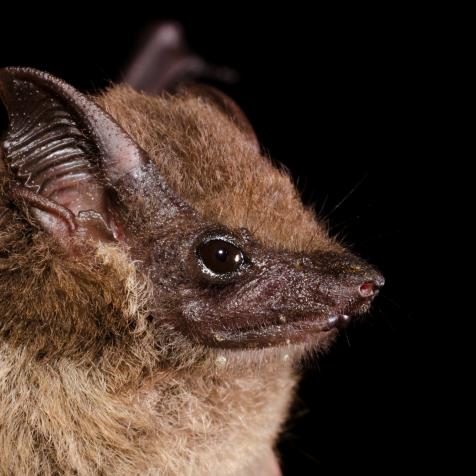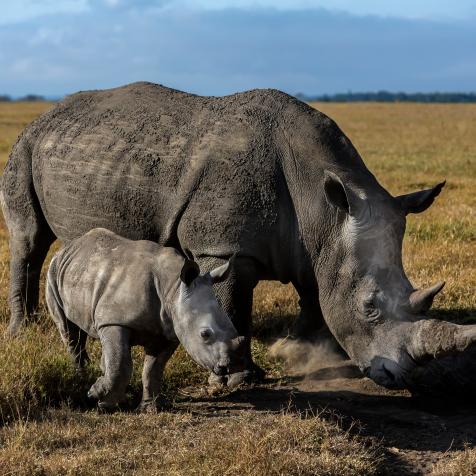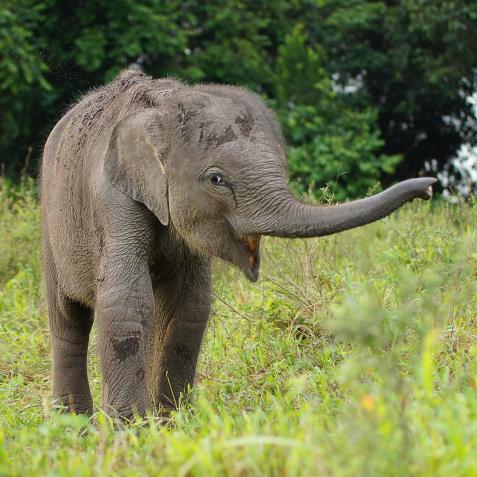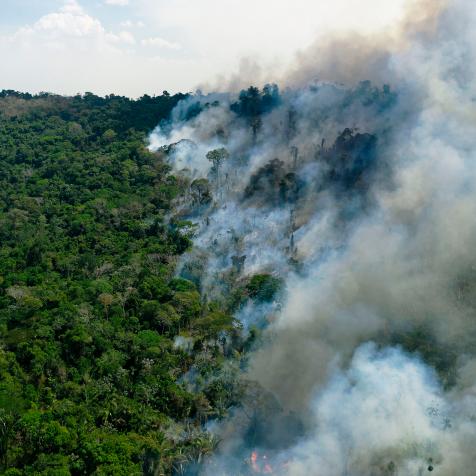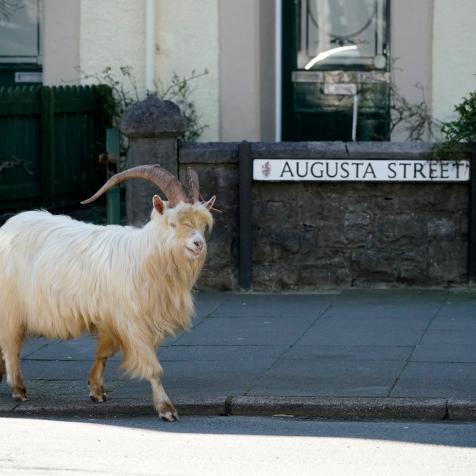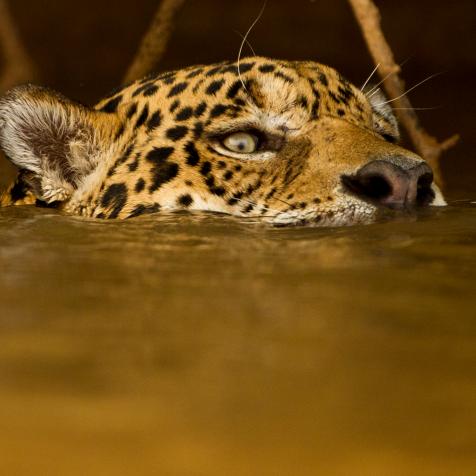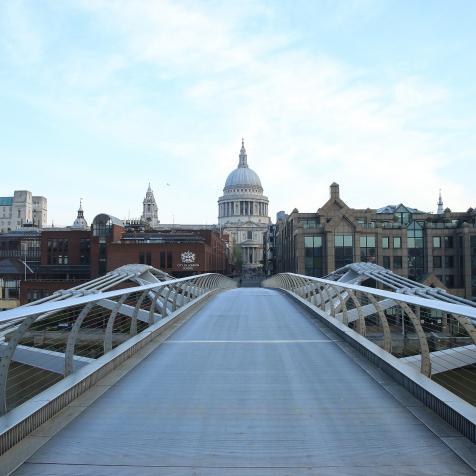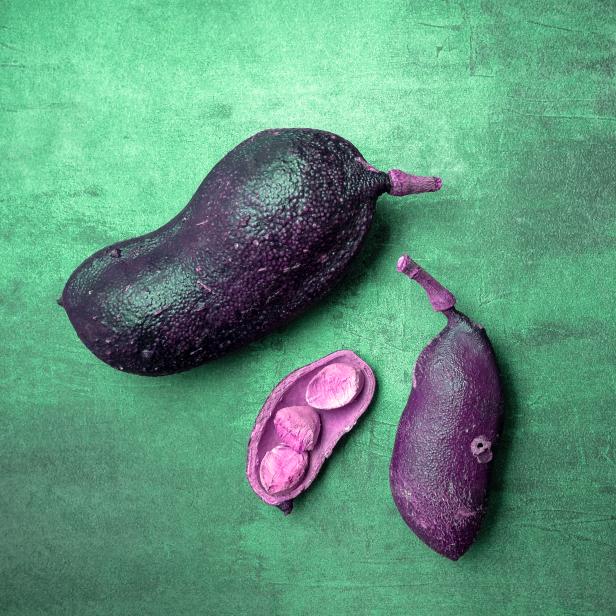
Erich Sacco
An Amazonian Tree Sought Refuge with the Norwegian Embassy
When an employee at the Norwegian Embassy in Brazil opened the door to step outside the consulate’s building one morning, an unusual visitor was waiting outside who wished to seek asylum: a 19 foot-tall endangered Jatoba tree.
The tree species, also known as ‘Brazilian Cherry’, thanks to its salmon reddish wood, grows in the Amazon rainforest, where it has been heavily logged.
This particular tree was transported by the Articulation of Indigenous Peoples of Brazil, a group formed to increase awareness of indigenous rights.
Sonia Guajajara, APIB's Executive Coordinator, stood on the steps of the embassy and read a letter to plead with the consulate to give the tree refuge.
"Today the Amazon has become a war zone; 90% of the deforestation is illegal," she said, calling for a boycott of products that contribute to deforestation in Brazil. Norway is the only country that has banned deforestation.
The United Nations High Commissioner for Refugees (UNHCR) is any living being who is out of its country of origin due to well-founded fear of being persecuted as well as due to serious and widespread violation of rights and conflicts. Guajajara says the tree is one such being.
"This refuge request may seem strange to the white man who lives apart from the natural world and considers himself greater than the trees, but ancestry has always taught that the meaning of life is the collective,” she said. “This request is a cry for the life of all species threatened by a corrupted and outdated vision of coexistence with Nature.”
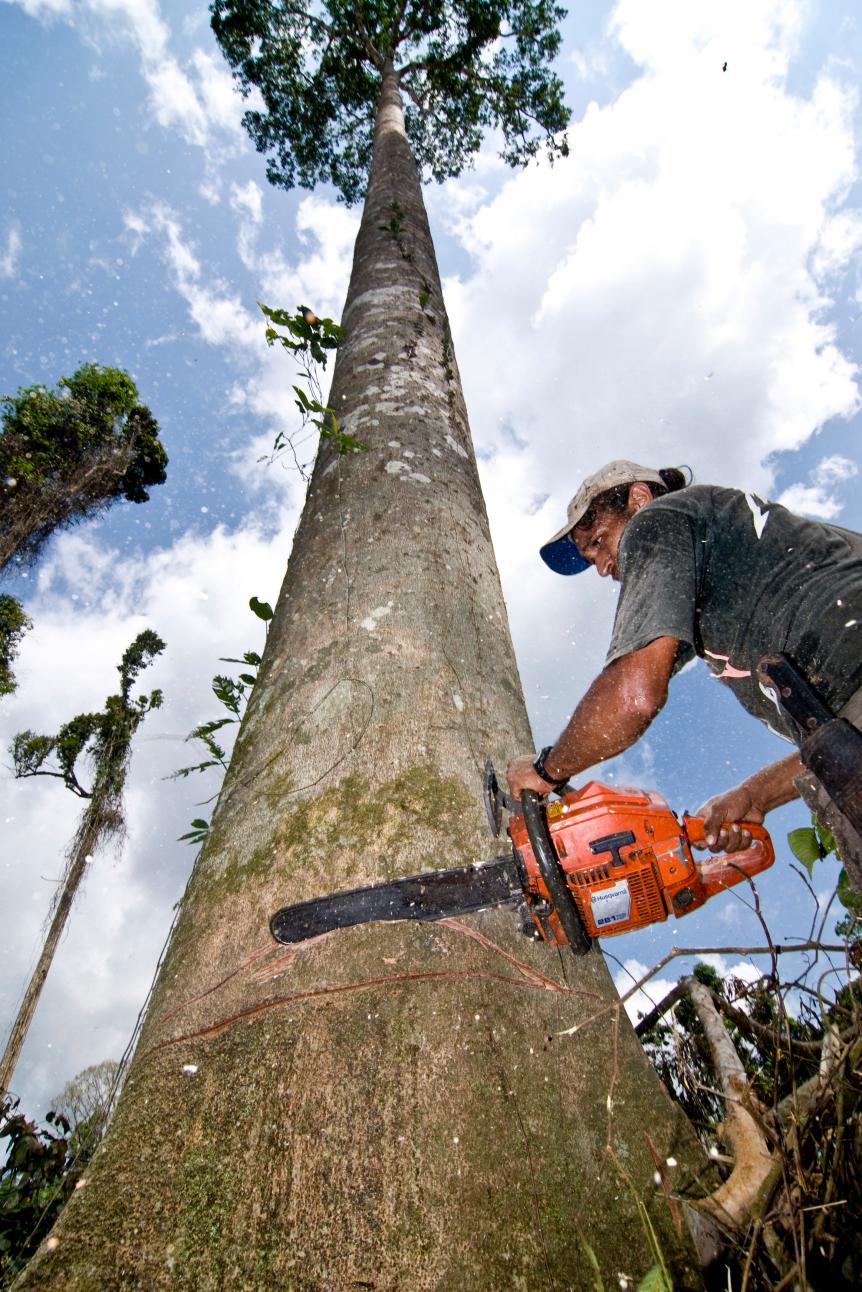
Paulo Fridman
Cutting a Jatoba tree from the forest. The Brazilian Government has announced a record rate of deforestation in the Amazon.
The wood from the tree is considered very valuable, and is one of the world’s most important commercial timber species, used to make cigar boxes, wardrobes, and other clothing storage due to its fragrant, insect-repellent properties. The sap of the tall canopy tree is used for medicinal purposes by indigenous people.
The International Union for Conservation of Nature lists the tree as “vulnerable”.
A recent study published in the scientific journal Nature revealed that fire in the Amazon, caused by human action, may have affected 95.5% of the vertebrate plant and animal species known from the rainforest.
Out-of-control deforestation brings the world's largest tropical rainforest closer to its point of no return. If the current rate of devastation is maintained – or increased –, this "point of no return" may arrive sometime between 15 to 30 years from now, experts have warned.
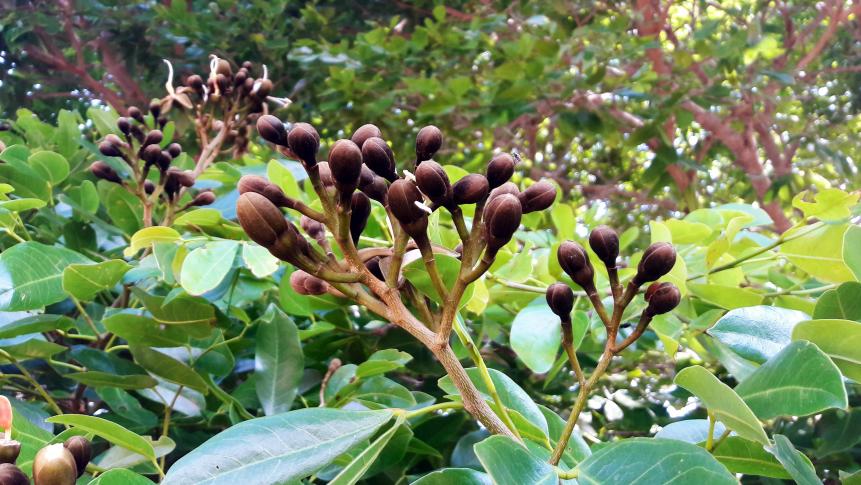
Marianogueira
Jatoba tree with flowers.
The APIB’s symbolic protest coincided with Brazilian president Jair Bolsonaro appearing at the United Nations General Assembly to defend what he says is his government fighting against deforestation.
Bolsonaro has pushed for more mining and agriculture in the rainforest, but at the UN convention, insisted that the country’s environmental laws are a model for the world.
Back on the embassy’s steps, Guajajara’s speech hit home, and the consulate opened its gates to the protestors' truck which carried the tree. The Jatoba tree has since been planted on embassy grounds.










